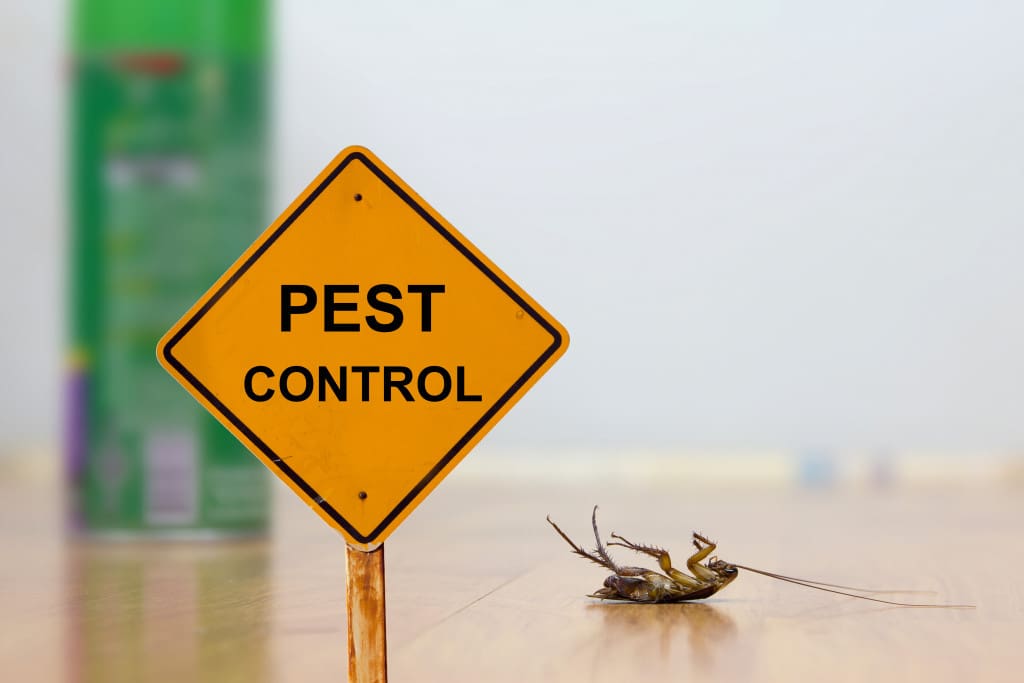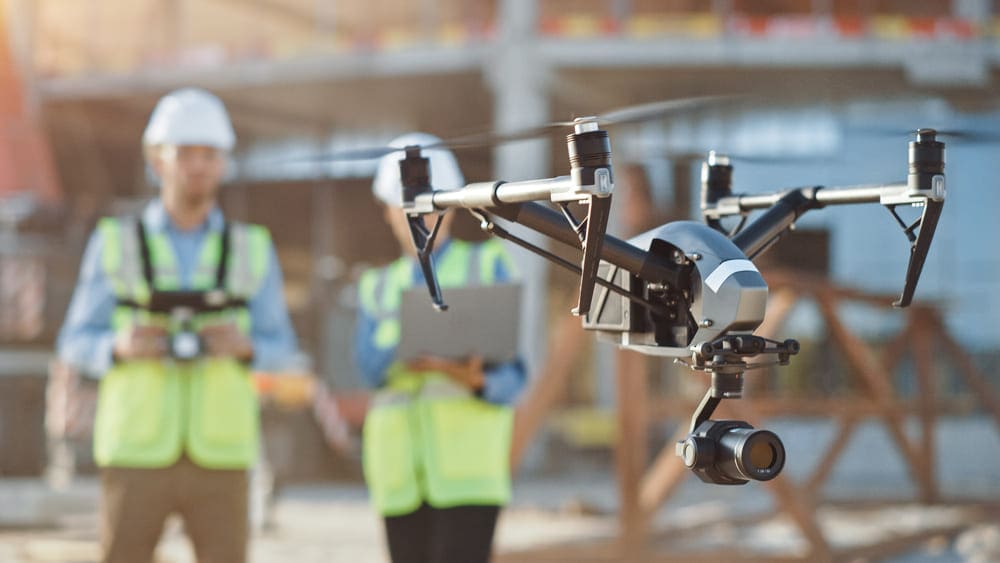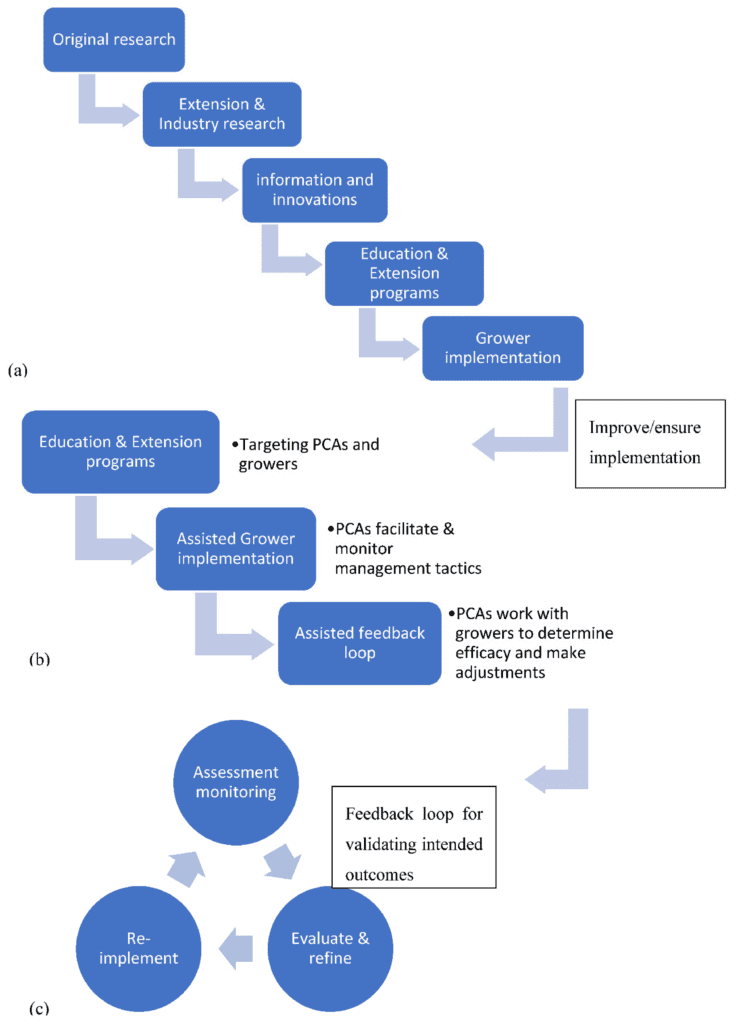Imagine a world where pest control is not just about eliminating bugs and rodents, but also about using innovative technologies and staying ahead of new trends. The future of pest control is rapidly evolving, with advancements such as smart traps, drone-based solutions, and eco-friendly methods gaining traction. These innovations not only make pest control more efficient and effective, but also minimize the impact on the environment. In this article, we will explore the exciting innovations and trends that are shaping the future of pest control, helping you stay informed and empowered in your quest for a pest-free environment.
Introduction to Pest Control

Importance of pest control
Pest control plays a crucial role in maintaining a healthy and safe environment. It not only protects our homes and businesses from potential damage caused by pests but also ensures the well-being of our health and the ecosystem. Pests can transmit diseases, contaminate food sources, and damage our property, making effective pest control vital in our everyday lives.
Current methods of pest control
Traditionally, pest control has primarily relied on the use of chemical pesticides, traps, and physical barriers. While these methods have been effective to a certain extent, they often come with drawbacks. Chemical pesticides can be harmful to human health and the environment, while traps and physical barriers may not be foolproof in preventing pest infestations.
The need for innovations in pest control
With the increasing challenges posed by pests and the negative impacts of conventional pest control methods, there is a clear need for innovative and sustainable solutions. Technological advancements have paved the way for new approaches that are more effective, environmentally friendly, and safer for humans and pets. In the following sections, we will explore some of these exciting innovations in pest control.
Technological Innovations in Pest Control
Integrated Pest Management (IPM)
Integrated Pest Management (IPM) is a holistic approach to pest control that focuses on prevention, monitoring, and control. It involves a combination of methods such as biological control, habitat modification, and targeted pesticide use. By integrating different strategies and considering the specific needs of each situation, IPM aims to minimize the use of pesticides and promote long-term pest management.
Remote Monitoring Systems
Remote monitoring systems have revolutionized the way we detect and address pest infestations. These systems utilize state-of-the-art sensors and connectivity to continuously monitor and collect data on pest activities. By remotely tracking pest populations, experts can accurately assess the severity of infestations and provide timely interventions. This real-time monitoring allows for more targeted and efficient pest control measures.
Smart Traps and Baits
Smart traps and baits are innovative devices that employ integrated technologies to attract and capture pests. These traps use sensors, artificial intelligence, and automated mechanisms to identify specific pests, monitor their activity, and deploy precise control measures. Smart baits, on the other hand, employ advanced chemical formulations that target specific pest species while minimizing impacts on non-target organisms.
Drone Technology in Pest Control
Drone technology has made significant strides in various industries, and pest control is no exception. Drones equipped with high-resolution cameras and sensors can be used for aerial surveillance and identification of pest hotspots. They can quickly cover large areas, inaccessible terrain, or tall structures that would otherwise be difficult to monitor. Drones also enable the targeted release of beneficial insects or pesticide sprays, leading to more efficient and effective pest control.
Biological Pest Control
Biological pest control involves the use of living organisms to suppress pest populations. Beneficial insects, such as ladybugs and parasitic wasps, are commonly used as natural enemies of pests. By introducing these organisms into the environment, they prey on or parasitize pests, reducing their numbers naturally. Biological control methods are environmentally friendly, pose little risk to humans and pets, and can be integrated with other pest control strategies for long-term management.
Sustainable Pest Control Practices

Non-toxic Pest Control Products
Non-toxic pest control products are gaining popularity as people become more conscious of the potential harms associated with conventional pesticides. These products utilize natural ingredients and are formulated to target specific pests while posing minimal risks to humans, pets, and the environment. Examples include plant-based insecticides, essential oil sprays, and microbial-based control agents.
Natural Pest Repellents
Natural pest repellents offer an alternative approach to control pests without the need for harmful chemicals. Ingredients like citronella, peppermint oil, neem oil, and garlic have proven to be effective in repelling a wide range of pests, including mosquitoes, ants, and rodents. These repellents can be applied directly or used in the formulation of eco-friendly pest control products.
Organic Pest Control Methods
Organic pest control methods rely on the principles of ecological balance and minimal disturbance. These methods prioritize the use of natural and organic substances, emphasizing prevention and long-term management. Techniques such as crop rotation, companion planting, and the use of organic fertilizers and amendments promote healthy plant growth and deter pests naturally.
Environmentally Friendly Pest Control Solutions
Environmentally friendly pest control solutions encompass a range of practices that prioritize sustainability and environmental stewardship. These solutions focus on reducing or eliminating the use of chemical pesticides, adopting integrated pest management approaches, and employing alternative methods that minimize impacts on non-target organisms and ecosystems.
Pest Control in the Digital Age

Online Pest Control Platforms
Online pest control platforms have emerged as a convenient and accessible resource for individuals seeking professional advice and services. These platforms connect users with licensed pest control operators who can provide guidance, conduct virtual consultations, and offer customized pest management solutions. By leveraging the power of the internet, these platforms streamline the process of finding reliable and knowledgeable experts in the field.
Pest Control Mobile Apps
Pest control mobile apps have become valuable tools in the hands of homeowners, pest control professionals, and enthusiasts alike. These apps offer features such as pest identification, pest behavior insights, treatment recommendations, and easy access to expert advice. Some apps even incorporate augmented reality and virtual reality technologies to enhance the user experience and assist with pest control decision-making.
Big Data and Analytics in Pest Control
The collection and analysis of large-scale data have transformed various industries, and pest control is now leveraging big data and analytics to enhance its effectiveness. By combining data on pest behaviors, environmental factors, and control methods, experts can develop predictive models and optimize pest management strategies. This data-driven approach enables proactive interventions and more targeted control measures.
Artificial Intelligence (AI) in Pest Control
Artificial intelligence (AI) is revolutionizing pest control by providing advanced capabilities in pest monitoring, identification, and decision-making. AI-powered algorithms can analyze vast amounts of data collected from various sources, such as sensors, cameras, and historical records, to detect and identify pests accurately. This technology enables real-time insights and facilitates timely interventions for optimal pest control outcomes.
Trends in Pest Control Industry

Green Pest Control
The trend towards green pest control practices continues to gain momentum as more people become aware of the potential hazards of traditional pesticides. Green pest control focuses on minimizing the use of chemical pesticides and prioritizing environmentally friendly alternatives. This approach aligns with the growing demand for sustainable and eco-conscious pest management solutions.
Increased Focus on Education and Training
The pest control industry recognizes the importance of education and training in maintaining high standards of professionalism and safety. There is a growing emphasis on providing comprehensive training programs and certifications for pest control technicians. This focus on education ensures that professionals are equipped with the necessary knowledge and skills to implement effective and responsible pest control practices.
Expansion of Pest Control Services
As the demand for pest control services continues to rise, the industry is expanding its offerings to meet diverse needs. In addition to traditional pest control services, companies now provide specialized services targeting specific pests, such as bed bugs or termites. Integrated services that combine pest control with other home maintenance tasks, such as lawn care or home inspections, are also becoming more prevalent.
Customized Pest Control Solutions
The one-size-fits-all approach to pest control is gradually being replaced by customized solutions that address specific pest challenges. Pest control professionals now conduct thorough inspections, consider the unique characteristics of each property, and develop tailored treatment plans. Customized solutions ensure that pest control measures are effective, efficient, and minimize any adverse impacts.
Challenges and Opportunities in Pest Control

Rapidly Evolving Pest Species
Pests have shown remarkable adaptability and can quickly develop resistance to traditional control methods. Rapidly evolving pest species pose a significant challenge to pest control professionals, necessitating the need for continuous research, innovation, and adaptation. By staying vigilant and proactive, the industry can develop new strategies to combat emerging pest threats effectively.
Resistance to Pest Control Methods
Overreliance on chemical pesticides has led to the development of resistance in many pest species. This resistance undermines the effectiveness of conventional control measures and highlights the urgency for alternative approaches. By diversifying pest management strategies and incorporating integrated pest management practices, professionals can minimize the risk of resistance development and ensure long-term success.
Regulatory and Compliance Issues
The pest control industry operates within a complex regulatory framework aimed at ensuring the safety of users and the environment. Compliance with local, state, and federal regulations is crucial to maintaining professional standards and avoiding legal consequences. Staying informed about the latest regulations and adhering to best practices is essential for pest control businesses to thrive.
Opportunities for New Startups
The pest control industry presents numerous untapped opportunities for innovative startups. As the demand for sustainable and technology-driven pest control solutions increases, new companies can capitalize on these trends. By developing unique products, services, or technologies that address specific pest control challenges, startups can carve out a niche in the market and contribute to the industry’s growth.
Impact of Climate Change on Pest Control
Changing Pest Behavior due to Climate Change
Climate change has significant implications for pest behavior and distribution. Rising temperatures, changing precipitation patterns, and altered ecological dynamics can influence pest populations, migration patterns, and reproduction rates. These changes challenge existing pest control strategies and require a comprehensive understanding of the interplay between climate and pest dynamics.
Emerging Pest Species
Climate change can create favorable conditions for the emergence and spread of new pest species. Warmer temperatures may enable pests to expand their range into previously unaffected areas, posing new challenges for pest control professionals. Early detection, rapid response, and the development of specific control measures are crucial in managing emerging pest species effectively.
Adapting Pest Control Strategies to Climate Change
To address the challenges posed by climate change, pest control strategies need to adapt and evolve. Integrated pest management approaches that focus on prevention and long-term solutions become even more important. Monitoring systems that consider climate variables, predictive modeling, and early warning systems enhance the effectiveness of pest control measures in a changing climate.
Future of Home Pest Control
Smart Home Pest Control Systems
Smart home pest control systems utilize connected technologies to protect homes from pest infestations. These systems integrate with existing smart home devices, such as sensors, cameras, and thermostats, to provide real-time monitoring and control of pest activity. Automated alerts, remote control, and data-driven insights ensure proactive pest management, providing homeowners with peace of mind.
Internet of Things (IoT) and Pest Control
The Internet of Things (IoT) is revolutionizing the way pest control is conducted by enabling seamless connectivity between devices and systems. IoT-enabled sensors can monitor pest behavior, environmental conditions, and treatment efficacy, providing valuable data for decision-making. This connectivity enhances data-driven pest control strategies and improves overall efficiency and effectiveness.
Personalized Pest Control for Homes
Personalized pest control solutions cater to the unique needs of each homeowner. By conducting thorough inspections, considering individual preferences, and utilizing advanced technologies, pest control professionals can develop customized plans for pest prevention and control. Personalized solutions give homeowners greater control over their pest management strategies and ensure long-term pest-free environments.
Industrial Pest Control Innovations
Automated Pest Control Systems
Industrial settings often face unique pest control challenges due to their scale and complexity. Automated pest control systems offer solutions tailored to these environments, incorporating technologies such as motion sensors, automated traps, and smart dispensers. These systems optimize pest monitoring, identification, and control, reducing labor costs and enhancing overall efficiency.
Enhanced Pest Monitoring Techniques
Industrial pest control relies on accurate and comprehensive monitoring to detect potential infestations and assess the effectiveness of control measures. Enhanced pest monitoring techniques, such as pheromone traps, remote sensors, and video surveillance, allow for real-time monitoring and rapid response. These techniques aid in early detection, prevention, and containment of pests in industrial facilities.
Innovative Pest Control Equipment
Innovation in pest control equipment continues to improve the efficiency and safety of pest management. Advanced sprayers and applicators ensure precise and targeted delivery of control agents, minimizing product waste and environmental contamination. Ultrasonic devices and electromagnetic pest repellers offer non-toxic alternatives for repelling pests, particularly in sensitive industrial settings.
Conclusion
In conclusion, the future of pest control holds great promise with innovative technologies, sustainable practices, and evolving trends. Integrated pest management, remote monitoring systems, smart traps, drone technology, and biological control are transforming the way we approach pest control. Sustainable practices, such as non-toxic products, natural repellents, and organic methods, prioritize human and environmental safety.
The digital age brings online platforms, mobile apps, big data analytics, and artificial intelligence to the forefront of pest control. These advancements enhance accessibility, improve decision-making, and streamline pest management processes. The industry also witnesses trends like green pest control, increased focus on education, expansion of services, and customized solutions to meet the diverse needs of clients.
Despite challenges posed by rapidly evolving pests, resistance to control methods, and regulatory compliance, opportunities abound for new startups to contribute to the pest control industry. Climate change necessitates adaptation and a deeper understanding of changing pest behavior and emerging species.
The future of home pest control lies in smart home systems, IoT integration, and personalized solutions, enabling homeowners to proactively manage pest infestations. Industrial pest control benefits from automated systems, enhanced monitoring techniques, and innovative equipment, optimizing efficiency in large-scale settings.
Staying updated with advancements, industry trends, and emerging challenges will be crucial for pest control professionals and consumers alike. By embracing innovation, sustainability, and education, the pest control industry can continue to create safe and healthy environments for generations to come.

I am Randy, the author behind PestControld.com. Drawing from decades of experience, I aim to provide valuable insights, expert advice, and practical recommendations to help you make informed decisions when assessing viable pest control solutions.